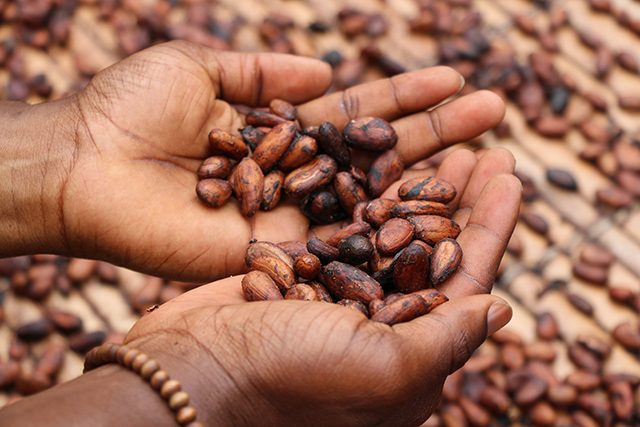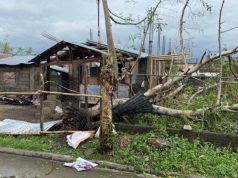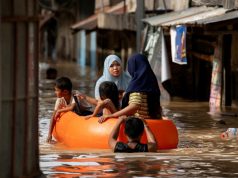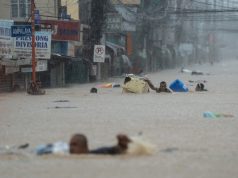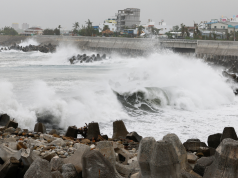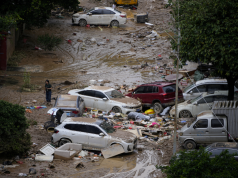KUALA LUMPUR — A Filipina chef is hoping chocolate will become the secret ingredient needed to help farmers in her typhoon-hit community survive and prosper when future natural disasters strike.
Louise Mabulo, 21, founded the Cacao Project in the rural town of San Fernando, about 390 km south of Manila, to help local farmers whose homes and livelihoods were destroyed by Typhoon Nock-ten in 2016.
More than 200 farmers have since been trained in modern, sustainable techniques and helped to plant more than 70,000 cocoa trees to restore land and livelihoods devastated by the typhoon.
“It was a frightening time for us because of the uncertainty of what would come next,” Mabulo told the Thomson Reuters Foundation by phone on Thursday.
“Not only did people lose their houses, but the electricity was cut off for months, and it was difficult to get relief and aid because a lot of roads were blocked.”
“In other towns the crime rates went up because people were desperate to make money, which led me to thinking about how I could help farmers rebuild their livelihoods.”
Over the past 40 years, natural disasters have cost the Asia-Pacific region about $1.3 trillion, according to U.N. estimates, with China, the Philippines, Vietnam and Japan worst-hit by typhoons.
Asia has to deal with an average 29-30 typhoons each year, with about 20 major typhoons passing through the Philippines each year.
Typhoon Nock-ten hit San Fernando almost three years ago, damaging about 4,000 homes and destroying about 80% of crops in the area, said Mabulo, who in the aftermath noticed that many cocoa trees remained standing.
“The typhoon meant people lost their livelihoods for up to five years, so we had to think of a way to help farmers reestablish their livelihoods and be more sustainable, and address the yearly typhoons,” said Mabulo.
“At the time the farmers didn’t have anything because the typhoon destroyed their livelihoods – so I approached them with a solution to reestablish it using cacao.”
“Cacao was ideal because it matched our soil type and there is a huge market for chocolates,” said Mabulo.
Most farmers in her area only grew rice, corn and coconuts before the typhoon, but have now adopted sustainable farming methods – like using less pesticides – and diversified to include more climate-resilient crops like cocoa.
“Not only are we planting a lot of trees in the area, it has also been able to revive two streams because it helped improve the soil retention,” said Mabulo.
Mabulo, a finalist on the television cooking show “Junior MasterChef” when she was 12, was declared winner of the U.N. Environment Programme’s Young Champions of the Earth Prize for the Asia-Pacific on Wednesday.
She travels to New York this week to collect her $15,000 prize at a U.N. climate summit, and will invest the money into training more farmers and eventually processing the local cocoa beans to make chocolate products.
The U.N. Environment Programme’s Young Champions of the Earth prize launched in 2017 and is awarded every year to people aged between 18 and 30 with outstanding ideas on how to protect the environment.
“Building resilience in a climate changing world is critical to helping communities weather the challenges of extreme weather events,” said Inger Andersen, the programme’s executive director.
“And in doing so, we can create jobs, build more liveable cities, and improve the well-being of the world’s most vulnerable, making sure no one is left behind.”—Reporting by Michael Taylor @MickSTaylor; Editing by Claire Cozens. Please credit the Thomson Reuters Foundation

